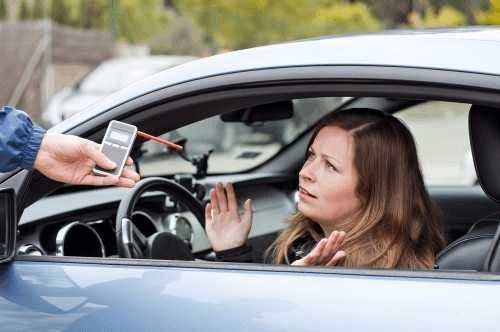Facing a drunk driving charge can be daunting, especially when breathalyzer and field sobriety test results are involved. However, these tests are not infallible, and several defenses can be used to challenge their accuracy and reliability. Drunk driving attorneys in NJ share these defenses and the factors that can lead to false positives.
Understanding Breathalyzer Test Limitations
Breathalyzer tests are commonly used by law enforcement to measure blood alcohol concentration (BAC) in suspected drunk drivers. While widely accepted, these devices have limitations that can affect their accuracy. One common defense is questioning the calibration and maintenance of the breathalyzer device. These devices need regular calibration to ensure accurate readings, and if they are not properly maintained, their results can be challenged in court.
Another factor is the presence of residual alcohol in the mouth, which can lead to inflated BAC readings. This can occur if the individual has recently used mouthwash, cough syrup, or other products containing alcohol. Attorneys can argue that the breathalyzer picked up mouth alcohol rather than deep lung air, which is a more accurate measure of BAC.
Breathalyzers also assume a standard ratio between the alcohol in a person’s breath and blood, but this ratio can vary among individuals. Factors such as body temperature, metabolic rate, and certain medical conditions can affect how alcohol is processed in the body, potentially leading to inaccurate results. Highlighting these discrepancies can be an effective defense strategy.
Challenging Field Sobriety Tests
Field sobriety tests are physical tasks administered by police officers to assess a driver’s level of impairment. These tests include the walk-and-turn, one-leg stand, and horizontal gaze nystagmus (HGN) test. However, numerous factors can influence a person’s ability to perform these tasks, leading to false positives.
One defense is challenging the officer’s administration of the tests. Standardized procedures must be followed to ensure the tests are valid, and any deviation can be grounds for contesting the results. For instance, the testing surface should be flat and non-slippery, and the officer should provide clear instructions.
Field sobriety tests are subjective and heavily reliant on the officer’s interpretation of the individual’s performance. Conditions such as nervousness, fatigue, physical disabilities, or even certain footwear can adversely affect a person’s ability to perform these tasks, regardless of alcohol consumption. Attorneys can argue that these factors, rather than intoxication, were responsible for the perceived impairment.
Factors Leading To False Positives
Understanding the factors that can result in false positives is key to challenging breathalyzer and field sobriety test results. Medical conditions such as acid reflux, diabetes, or hypoglycemia can produce acetone in the breath, which some breathalyzers may mistakenly register as alcohol. Environmental factors like exposure to certain chemicals or fumes can also interfere with breathalyzer readings.
In the case of field sobriety tests, external factors such as poor weather conditions, uneven testing surfaces, and inadequate lighting can all contribute to poor performance. Attorneys can use these factors to argue that the conditions were not conducive to accurately assessing the individual’s sobriety.
Legal Strategies For Defense
Attorneys defending clients in drunk driving cases can employ several strategies to challenge breathalyzer and field sobriety test results. One approach is to request the maintenance and calibration records of the breathalyzer device used during the arrest. If there are gaps or inconsistencies in these records, it can be argued that the device was not functioning properly at the time of testing.
Cross-examining the arresting officer is another key strategy. By questioning the officer’s training, experience, and adherence to testing protocols, attorneys can cast doubt on the reliability of the test results. Additionally, presenting evidence of the client’s medical conditions or other factors that could have affected the test outcomes can strengthen the defense.
In some cases, expert witnesses may be called upon to provide testimony on the limitations and potential inaccuracies of breathalyzer devices and field sobriety tests. Their expertise can help explain the scientific basis for challenging the test results and support the defense’s arguments.
Conclusion
While breathalyzer and field sobriety tests are commonly used in drunk driving cases, they are not without flaws. Drunk driving attorneys in NJ recommend understanding the limitations and potential inaccuracies of these tests to challenge their validity effectively. With a well-prepared defense strategy, contesting these results and protecting the rights of individuals facing drunk driving charges is possible.
Keep an eye for more latest news & updates on NY City Paper!
